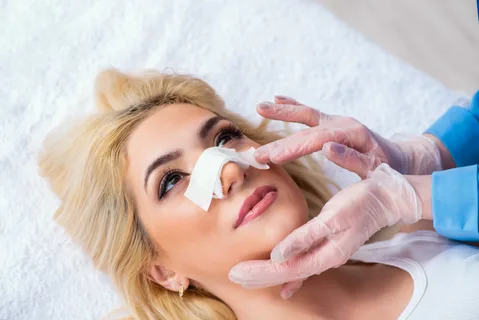Can a General Practitioner Treat Varicose Veins?
Varicose veins are a common condition that many individuals experience as they age. These veins are enlarged, twisted, and often blue or purple in color, most commonly appearing on the legs. While varicose veins are not typically dangerous, they can cause discomfort, pain, and self-consciousness. Many people wonder, “What kind of doctor treats varicose veins?” This question arises when individuals are unsure if their general practitioner (GP) can address their concerns or if they need to seek out a specialist. This article will explore whether a general practitioner can treat varicose veins and when it is necessary to visit a vein treatment clinic.
What Are Varicose Veins?
Varicose veins occur when the valves in the veins fail to work properly. These valves are responsible for regulating blood flow, ensuring that blood moves in one direction towards the heart. When these valves weaken or become damaged, blood starts to pool in the veins, causing them to enlarge and twist. The most common symptoms of varicose veins include:
- Visible, bulging veins on the legs or other parts of the body
- Swelling or heaviness in the legs
- Pain or discomfort, especially after standing for long periods
- Itching or burning sensations around the affected veins
While varicose veins can sometimes be a cosmetic concern, they can also lead to more severe issues, such as skin ulcers, blood clots, or deep vein thrombosis.
What Kind of Doctor Treats Varicose Veins?
When it comes to treating varicose veins, what kind of doctor treats varicose veins? A general practitioner (GP) may be the first point of contact for individuals with varicose veins. However, GPs are typically not specialists in vein-related issues. They can provide initial assessments, diagnose the condition, and offer basic treatments for mild cases.
If you’re experiencing significant discomfort, pain, or more severe symptoms, your GP may refer you to a specialist, such as a vascular surgeon, phlebologist, or an interventional radiologist. These specialists have the training and expertise to offer more advanced treatments for varicose veins, such as:
- Endovenous laser therapy (EVLT)
- Sclerotherapy
- Vein stripping surgery
- Radiofrequency ablation
A vein treatment clinic is a medical center where patients can receive specialized care for conditions like varicose veins. These clinics are staffed by experts in vein health who use the latest technologies to provide effective treatments.
Can a General Practitioner Treat Varicose Veins?
Now that we know what type of doctors treat varicose veins, the next question is whether a general practitioner can treat them. In many cases, a GP can manage the initial stages of varicose veins. GPs may recommend lifestyle changes, such as:
- Elevating the legs to reduce swelling
- Wearing compression stockings to improve blood flow
- Exercise to improve circulation and reduce symptoms
Additionally, a general practitioner can prescribe medications for pain relief or anti-inflammatory drugs to alleviate discomfort. For individuals with mild varicose veins, these non-invasive treatments can be effective in managing the condition. However, if the varicose veins are more severe or causing significant discomfort, a GP may refer the patient to a vein treatment clinic for more advanced options.
When Should You See a Specialist?
If your varicose veins are causing significant pain, swelling, or discomfort, or if they are affecting your quality of life, it may be time to see a specialist at a vein treatment clinic. A vascular surgeon or phlebologist will perform a thorough evaluation, which may include an ultrasound to assess the blood flow in the veins. Based on this assessment, they can recommend the most suitable treatment option.
Some signs that it’s time to see a vein specialist include:
- Persistent or worsening pain in the legs
- Visible swelling or ulcers near the veins
- A feeling of heaviness or fatigue in the legs
- The appearance of blood clots or darkening skin around the affected veins
While some individuals may experience varicose veins without any complications, others may develop more serious conditions that require medical intervention.
Advanced Treatments for Varicose Veins
If a general practitioner deems the condition more severe, they will refer you to a vein treatment clinic where a specialist will provide more advanced treatments. Some of the most effective treatments available today include:
- Sclerotherapy: A minimally invasive procedure where a special solution is injected into the affected veins, causing them to collapse and eventually be absorbed by the body.
- Endovenous Laser Therapy (EVLT): A laser is used to close off the affected vein, causing it to shrink and disappear. This procedure is performed under local anesthesia and is typically done on an outpatient basis.
- Radiofrequency Ablation (RFA): This treatment uses heat to close the veins, which are then absorbed by the body over time. Like EVLT, RFA is minimally invasive and performed under local anesthesia.
- Vein Stripping and Ligation: In more severe cases, surgical removal of the affected veins may be necessary. This procedure is typically done under general anesthesia and is reserved for the most extreme cases.
- Ambulatory Phlebectomy: This procedure involves the removal of smaller varicose veins through tiny incisions. It is typically done on an outpatient basis and requires only local anesthesia.
The Role of a General Practitioner in the Treatment Process
Even though a GP may not specialize in varicose vein treatments, they play an important role in the overall treatment process. Your GP can:
- Diagnose the condition
- Recommend initial treatments to manage symptoms
- Provide referrals to specialists at a vein treatment clinic when necessary
- Offer advice on lifestyle changes, such as weight management, exercise, and proper leg care
Conclusion
In conclusion, while a general practitioner can provide initial care and help manage the symptoms of varicose veins, they are not usually the go-to professional for advanced treatment. If you’re wondering what kind of doctor treats varicose veins, a vascular surgeon, phlebologist, or specialist at a vein treatment clinic would be the best option for more advanced care. If you’re dealing with varicose veins that are causing pain, discomfort, or other complications, it’s essential to seek a specialist’s care for the most effective treatment options available. Your GP will be your first point of contact, but they will likely refer you to a vein specialist for further assessment and treatment.













